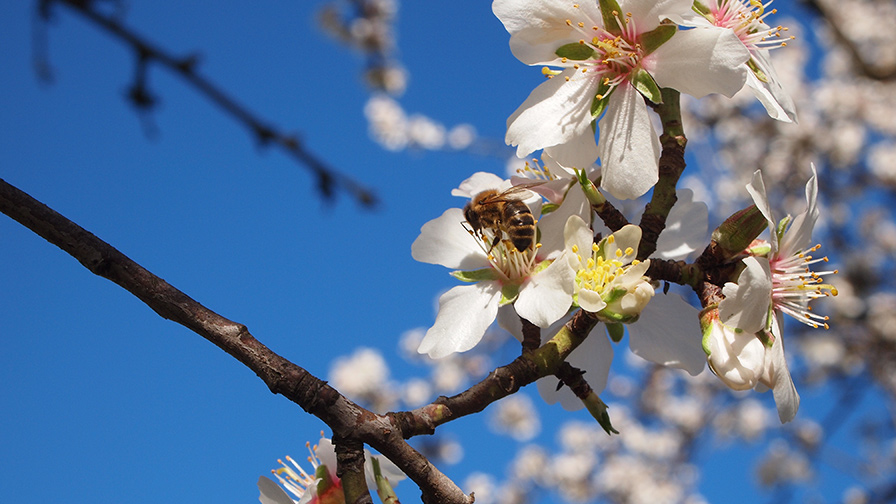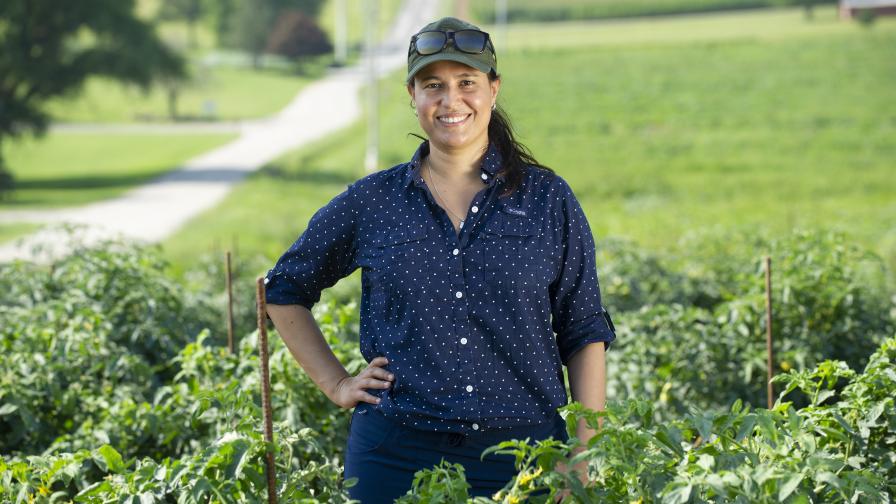Almond Board of California Officer Briefs Congressional Leaders on Pollinator Coalition

Photo Courtesy of Almond Board of California.
Almond Board of California (ABC) Chief Scientific Officer Josette Lewis testified online to inform congressional leaders in Washington D.C. about the California Pollinator Coalition and its value to the health of bees and other pollinators.
Lewis was one of four speakers, and the only representative from agriculture, at the briefing. It was convened by Rep. Rodney Davis (R-IL) and Rep. Jimmy Panetta (D-CA) during National Pollinator Week.
“This hearing, and this week, were extremely valuable because they helped raise awareness about the need to protect all pollinators and their habitats,” Lewis says. “For the California almond industry, every week is pollinator week. This is something we work hard at every day.”
During the briefing, Lewis detailed the steps being taken by the California Pollinator Coalition. She explained why its brand of collaborative conservation is a strong model to both bolster the health of pollinators and to set an example for a range of effective environmental alliances among independent groups.
The pollinator coalition includes more than 20 California organizations. ABC spearheaded it along with the Pollinator Partnership and the state’s Department of Food and Agriculture. It represents the large majority of agricultural acreage in the state. Its goal is to expand pollinator health and habitats on working ag lands.
“The representatives heard how the coalition represents agriculture putting its best foot forward,” Lewis says. “Given the crucial importance of pollinators to food production and to ecosystems, it’s essential that agriculture be part of the solution. That’s one reason ABC partnered with the Pollinator Partnership to help build this coalition. We know the almond industry and the ag community can continue to help.”
The congressional leaders wanted Lewis to address the value of collaborations like the Pollinator Coalition, how they can be built, and how they can help research and share incentive programs.
An example given was ABC’s Bee+ Scholarship program, which pays up to $2,000 of the cost of seeds for pollinator-friendly cover crops. The program added 15,000 acres of pollinator habitat in almond orchards in its first year. The Bee+ Scholarship also covers the fees to register as a “Bee-Friendly Farm.”
“The goal is to reduce the risks to growers to try new practices that can benefit pollinators and growers alike. One size does not fit all growers, so this offers a chance to try something new,” Lewis says. “Collaborations are effective because everyone has a stake in healthy ecosystems and healthy food, and together we can help each other take actions and make a difference.”










